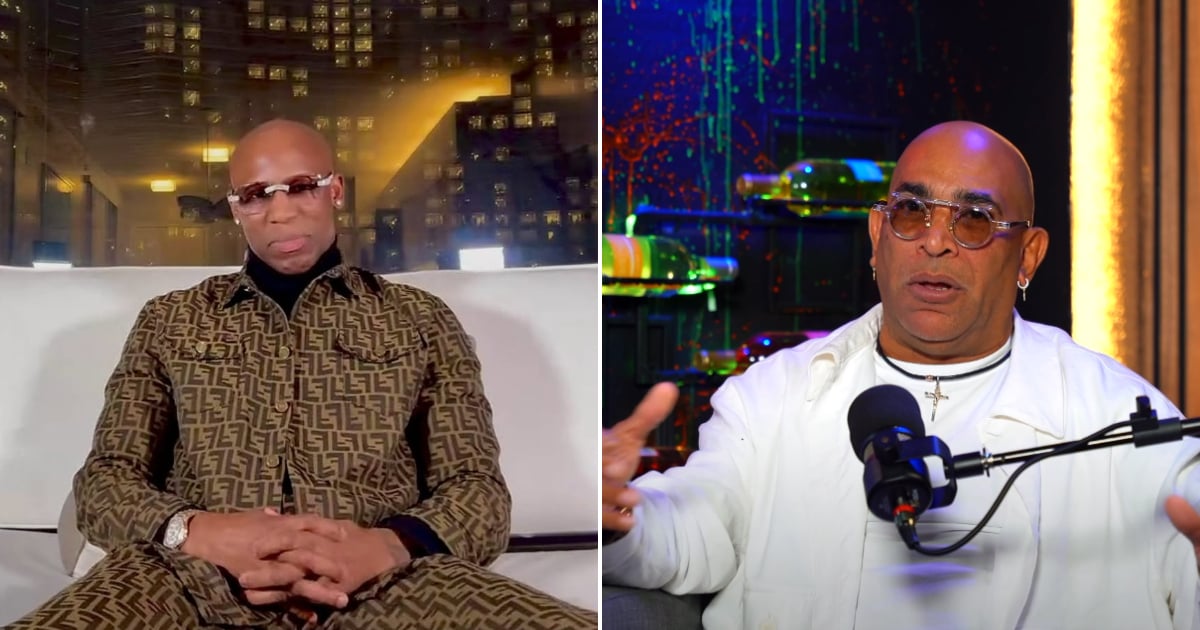Cuban boxer Yordenis Ugás took to social media to express his disappointment with certain Cuban artists in exile who choose to stay silent about the pressing political and social issues plaguing the island. "To talk about the situation in Cuba, the political prisoners, the poverty, the hunger, and the lack of freedom in your country, you don't need to be a politician, just a human being. It's astonishing! And yet many Cubans still defend this stance. So many of our people lack courage, they lack shame, they're cold souls—the system has robbed them of everything," Ugás commented on a Facebook post by CiberCuba Noticias, which referenced recent statements by Lazarito Valdés on why he avoids political involvement.
Ugás's remarks came as a response to comments made by musician Lazarito Valdés, the director of the band Bamboleo. In an interview for the podcast Destino Tolk, Valdés stated that he steers clear of political matters, focusing solely on his music career. "I am not a politician; I don't get involved in politics. My thing is making music," Valdés declared, further explaining, "When a politician is interviewed, they don't talk about music, so why should musicians talk about politics?" The pianist emphasized his goal to develop as an artist in the United States, where he relocated with his family in November 2024. "I'm not interested in politics; I came to the United States because it's the best country in the world, the best music is made here. I came with a strong desire to expand my piano skills and grow as an artist," he asserted.
Ugás's comments sparked a lively debate among Facebook users about the role of exiled Cuban artists and their responsibility to speak out on Cuba's situation. Some supported his stance, arguing that those with a significant platform should use it to advocate for freedom and human rights on the island. One user remarked, "You can reserve your opinions in the name of democracy and freedom of expression, but I say in the name of freedom and democracy that it's a disgrace when someone with such media reach doesn't raise their voice for their suffering people under a dictatorship. 'The silence of the lambs' will go down in history as someone who could have defended their people but chose to remain silent like a coward. It's not about being political; it's about having dignity and courage."
Conversely, others argued that individuals have the right to decide whether or not to engage in political discourse without being labeled as complicit with the Cuban system. "Yordenis Ugás, it shouldn't be mandatory to talk about Cuba. Everyone has the right to keep their opinions to themselves if they choose, otherwise, what freedom and democracy are we talking about?" the user countered.
The conversation continued with a mix of supportive and critical comments directed at both Ugás and Valdés. While some defended the need to speak out against the Cuban regime, others maintained that artists should be free to focus on their craft without external pressures.
The controversy stemmed from Lazarito Valdés's remarks on the Destino Tolk podcast, where he reiterated his commitment to music over politics. This incident mirrors similar situations with other exiled Cuban artists who have opted to stay out of political debates.
Yordenis Ugás has been vocal about Cuban freedom before. Earlier this year, in January, he participated in a protest outside the White House in Washington, demanding the release of political prisoners from Cuba and denouncing the abuses of the Cuban regime.
Meanwhile, the departure of Lazarito Valdés from Cuba in November 2024 and his subsequent move to Miami have elicited varied reactions. Some have recalled his involvement in the official song "No te metas," funded by Cuba's Ministry of Culture, where government-aligned artists criticized dissidents and activists. Nonetheless, Valdés has consistently emphasized his desire to grow artistically in the United States without political entanglement.
Discussion on Cuban Artists' Role in Political Issues
Why did Yordenis Ugás criticize Cuban artists in exile?
Yordenis Ugás criticized Cuban artists in exile for their silence on the political and social issues affecting Cuba, suggesting that speaking out is a humanitarian duty rather than a political act.
What was Lazarito Valdés's stance on political involvement?
Lazarito Valdés stated that he does not engage in political matters, focusing instead on his music career, as he believes his priority is to develop as an artist in the United States.
How did the public react to Ugás's comments?
The public response was mixed, with some supporting Ugás's call for artists to speak out against the Cuban regime, while others defended the right of individuals to choose whether to participate in political discussions.
